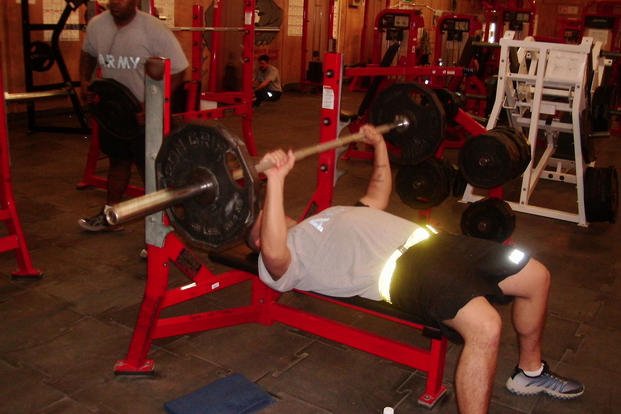When you fail a fitness test or body-fat measurement in the Army Reserves or National Guard, you often will be placed in some form of remedial PT program, where you will spend some of your "free" time doing exercise workouts. Some commands may place the burden solely on you to figure out how to pass the next fitness test.
Here is a proactive Army reservist asking about a plan ahead of fitness test weekend:
Mr. Smith,
Hello --
I am an Army reservist. Our unit has had an ongoing issue with soldiers not passing the APFT. This last week, during a meeting, we were discussing ways to remedy the problem, and it was decided I should put together a remedial PT program.
In my search for information on how to run a remedial PT program, I have read many of your articles and have found them very helpful. I do have a question, and I would appreciate your advice. Next month we have the APFT on Saturday and I am supposed to conduct remedial PT for those who failed on Sunday.
Many of the soldiers who will be in this group will be very sore from the APFT, and I do not want them to injure themselves. Do you have any suggestions for a workout session after an APFT? Honestly I am considering yoga, but I am not sure how the command will understand why the remedial PT group is doing yoga.
Is this a good idea?
Way to be proactive.
First, I would start training immediately for the next few weeks. You might save a few borderline failures from failing. Check out this article for some group PT ideas, as well as some PFT-Taking Tips (running tips).
For people who need to focus on weight loss as well as getting in better shape to pass the PFT, check out Remedial Training -- Foundation Building
You are not alone with these problems. They are far more prevalent than most people think.
About the back-to-back failure and Sunday workout, I think it is fine to do something, but it depends on what they failed and how badly they failed the fitness test.
You may have people who do not train for the PFT and "wonder why they failed." You have to be careful with these people; they are likely too deconditioned to do much of anything the day after. I would recommend non-impact cardio options (bike, elliptical or rowing) to get the blood flowing, heart and lungs pumping and then stretch.
You also may have someone who barely failed the run by a few seconds or the sit-ups by a few reps. Get them moving and show them the above links about learning your running goal pace by doing intervals at that speed. Practice sit-ups at your goal pace, too. In a two-minute sit-up test, most people will get close to 30 in 30 seconds and not match that in the next 1:30. Slow the beginning pace down to 15-20 in 30 seconds and score in the range of 60-80 in the next test by working smarter.
Yoga is smart actually. But you should have them do some form of cardio, even if it is only a 20- to 30-minute walk, bike, elliptical, etc. ... Then follow with a yoga-based stretching plan.
During this 10- to 15-minute stretch, find out where they are failing. But if you want to get better at taking fitness tests, you have to practice fitness tests. And not just a few weeks prior to the test, but all year. Making fitness a habit is essential to your job performance.
Don't like fitness tests? Many people stay in shape enough to do well on fitness tests with a few sets of PT a day and playing basketball or other sports that involve running often.
Need to lose weight? Instead of running while 30-40 pounds overweight, start them off on a bike, elliptical, rowers or swimming, but move hard with pyramids and intervals.
-- Stew Smith CSCS
Stew Smith is a former Navy SEAL and fitness author certified as a Strength and Conditioning Specialist (CSCS) with the National Strength and Conditioning Association. Visit his Fitness eBook store if you're looking to start a workout program to create a healthy lifestyle. Send your fitness questions to stew@stewsmith.com.
Want to Learn More About Military Life?
Whether you're thinking of joining the military, looking for fitness and basic training tips, or keeping up with military life and benefits, Military.com has you covered. Subscribe to Military.com to have military news, updates and resources delivered directly to your inbox.




















